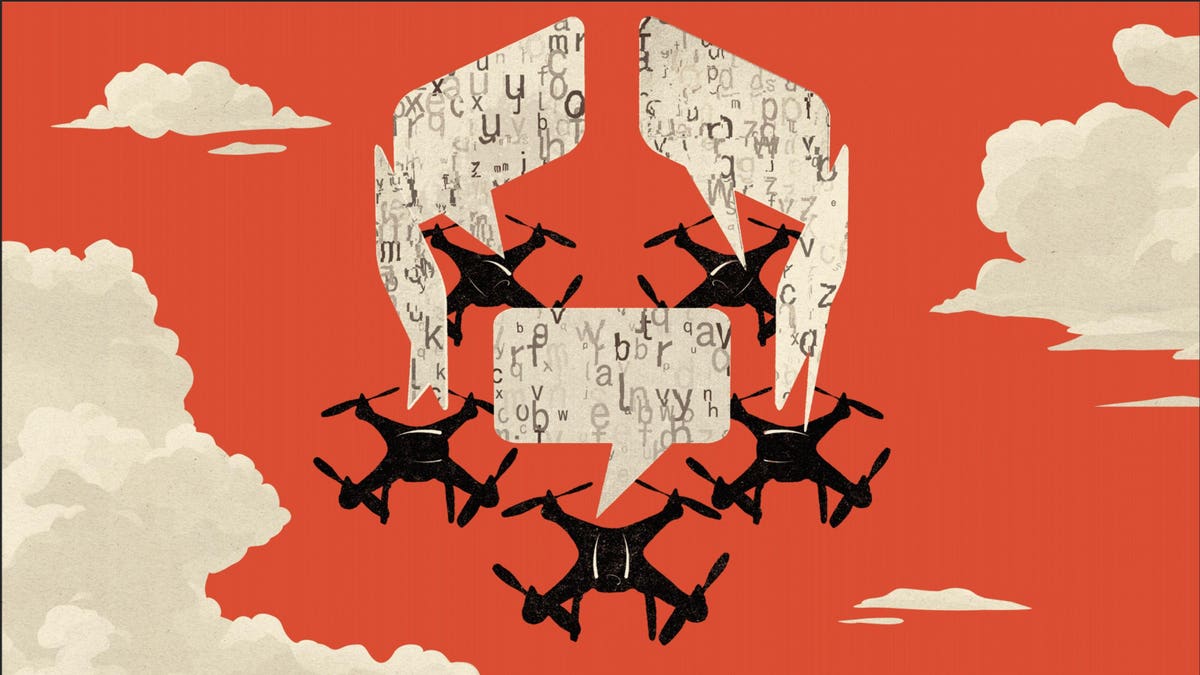“It lets R2D2 talk to C3P0," Keven Gambold, Droidish’s mastermind and the CEO of government contractor Unmanned Experts, explained to Forbes, recalling the iconic robot duo from Star Wars.
When researchers or government contractors crack the code, these advanced drone systems will launch together, work out amongst themselves how best to achieve their goals and land in tandem — with human pilots intervening only should something go awry. Spurred on by Ukraine’s extensive use of drones to defend against Russian invasion, and by fears of China’s advancing technological prowess, America’s best-funded agency is spending big across research labs, academia and AI tech companies to ensure the U.S. is at the bleeding edge of next-generation drone warfare.



This is a very convulated way to say you’re going to make a common API
Likely because the higher ups or media facing members of the project don’t understand what it is or how it works and had it described to them with an overly simplistic analogy
I mean, it can be an API using a format easily put into human speech, and then machine-recognized. Said format would be a language, or even a code, intended for human-machine interaction via speech, like there are codes intended for error correction in various media with varying nature of errors.
So that humans would be able to give voice commands almost in natural language.
Only this wouldn’t be such groundshaking news, older Internet protocols like SMTP and FTP already are human-readable.
This also wouldn’t cost nearly as much as the title implies.
They can just start with Logo and add a few keywords (like grenade, death ray, etc.), easy.